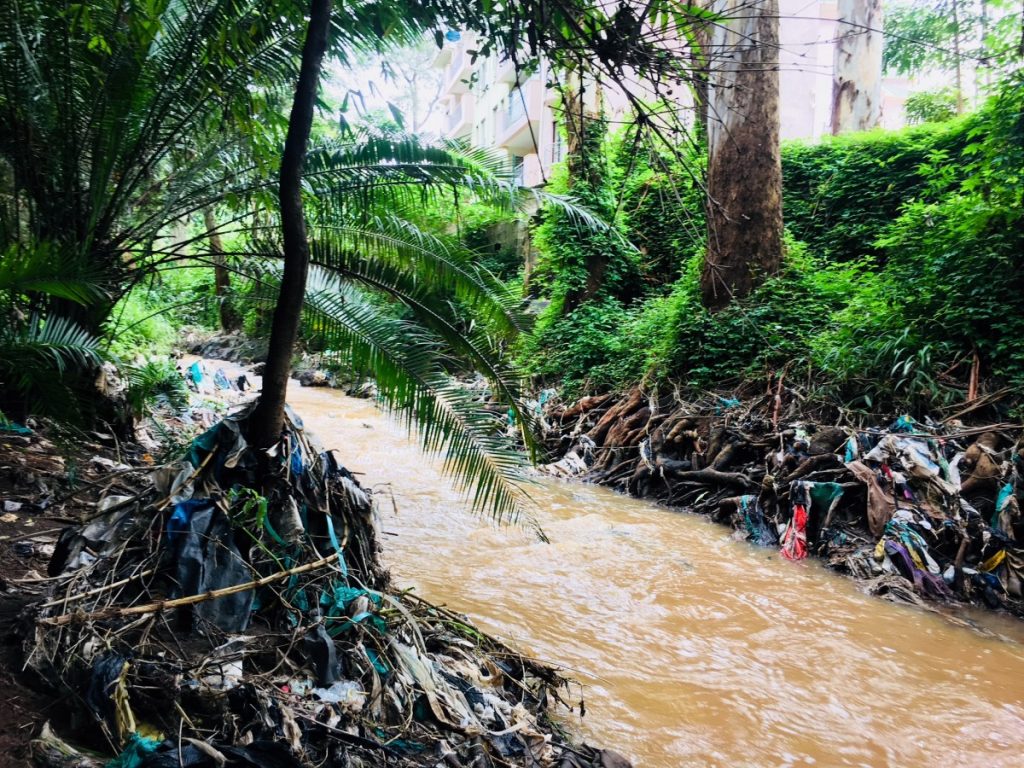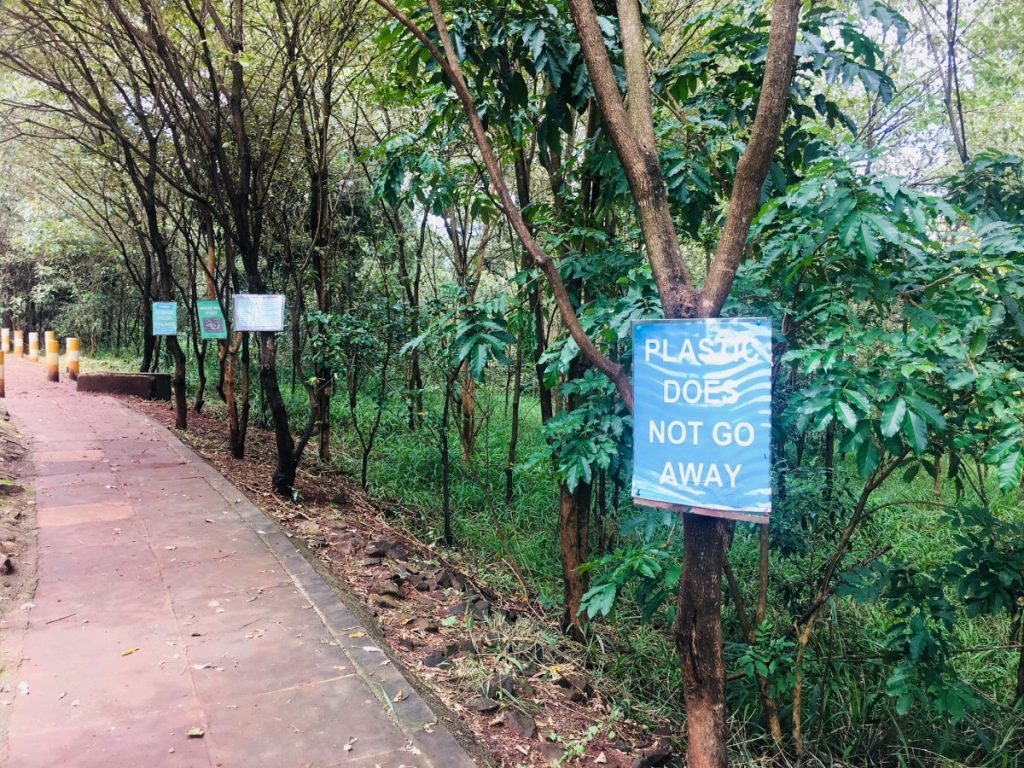When landing at Nairobi International Airport, one of the first announcements passengers hear on the airplane is “Please make sure to dispose of your plastic bags on board the aircraft because Kenya has a general plastic bag ban and does not allow them to be brought into the country.”
This is a good idea.
As of August 2017, Kenya has banned the use and manufacture of plastic bags for carrying for commercial and household use. From the picture below, it’s easy to see why this was necessary, with increasing pollution from plastic bags domestically, Kenya was facing a major national problem.

Some might argue that an outright ban on household use of plastic bags is a bit extreme.
Support Business by Charging for Plastic Bags
There are other measures that can be taken reasonably, such as those which have been taken by Germany and China: charging for plastic bags.
In 2008, China enacted a law stating that all retail outlets must charge customers for thin plastic bags. From my experience in China for 6 years, the normal price of a plastic bag at the supermarket was about $0.01. Interestingly however, this caused the national usage of plastic bags of the types targeted to drop by about 65%, and it is easy to see why. If we are all forced to ask ourselves “do I need a plastic bag?” there are many times that we will realize that we don’t. Also, it forces the employees at the checkout process to turn off “auto-bagging.”
This type of psychology is reminiscent of the opt-in vs. opt-out programs. Germany has an opt-in system for organ donation and has only 12% consent rate, while its neighbor Austria is opt-out system and has a 99.8% consent rate. If everyone is forced to “opt-out” of taking a plastic bag, there are very few people who will take that leap; however, if everyone is forced to “opt-in” to taking a plastic bag, we will see a dramatic fall in the amount of people taking a plastic bag at checkout.
Germany and the European Union are pushing for reductions in plastic bag use through higher fees on plastic bags and getting support from the retail industry. With strong government leadership, the retail industry can benefit in three ways from charging for plastic bags:
- Increased revenue through plastic bag sales
- Reduced costs for plastic bag purchases
- Lower costs for society for garbage disposal, and lower environmental costs which impact all areas of society including retails – this means lower taxes and lower fees for business
Kenya is at the extreme end of the spectrum in terms of an outright plastic bag ban, but there are good examples to follow from China and Germany – who simply force customers to opt-in to using plastic bags and have proven a major reduction in overall plastic pollution and costs.
And remember, the decisions we make today last for a long time. According to this insightful sign in the Karura National Forest: “Plastic does not go away.”

———–
Graham Majorhart is the co-founder of Carby Box, the easiest way to become carbon neutral – in 1 click through Amazon.
